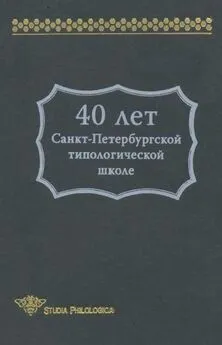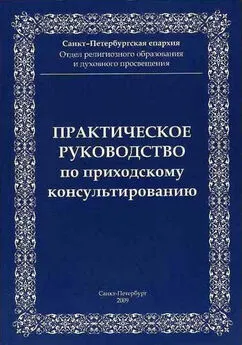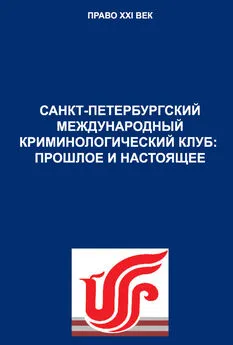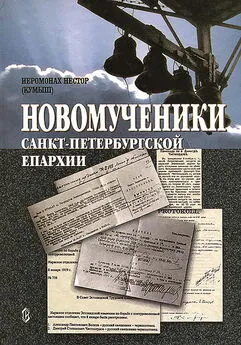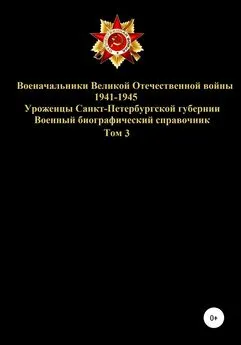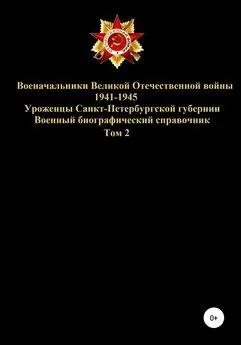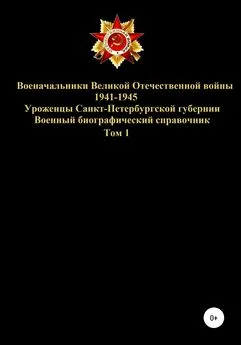В. Храковский - 40 лет Санкт-Петербургской типологической школе
- Название:40 лет Санкт-Петербургской типологической школе
- Автор:
- Жанр:
- Издательство:Знак
- Год:2004
- Город:Москва
- ISBN:5-9551-0003-2
- Рейтинг:
- Избранное:Добавить в избранное
-
Отзывы:
-
Ваша оценка:
В. Храковский - 40 лет Санкт-Петербургской типологической школе краткое содержание
Сборник подготовлен в связи с 40-летием группы структурно-типологического изучения языков Института лингвистических исследований РАН и 95-летием со дня рождения основателя группы — проф. А. А. Холодовича. Статьи, включенные в сборник, посвящены следующим вопросам: теория диатез и залогов, проблемы синтаксиса разноструктурных языков, проблемы грамматической теории. Тематика статей отражает круг научных проблем, находившихся в центре внимания А. А. Холодовича, его учеников, последователей и всех российских и зарубежных лингвистов, связывающих себя с традицией Санкт-Петербургской типологической школы. Статьи подготовлены авторами на основе докладов, прочитанных на международной юбилейной конференции «Категории глагола и структура предложения», которая проходила в Институте лингвистических исследований РАН в мае 2001 г.
40 лет Санкт-Петербургской типологической школе - читать онлайн бесплатно полную версию (весь текст целиком)
Интервал:
Закладка:
Voronin S. V, Bratoes I. В. = Воронин С. В., Братусь И. Б. Типология континуантов в индонезийском и английском языках // Тезисы дискуссии «Типология как раздел языкознания». М., 1976.
Voronin S. V, Lapkina L. Z.= Воронин С. В., Лапкина Л. 3. Типология тоновых инстантов-континуантов в ангийском и башкирском языках: Деп. от 22.02.1977. № 1201/ИНИОН АН СССР.
Voronin S. V., Lapkina L. Z. = Воронин С. B. Лапкина Л. 3. К типологии ономатопического словообразования (тоновые послеударные инстанты-континуанты) // Проблема статуса деривационных формантов. Владивосток, 1989.
Wessén Е. Schwedische Sprachgeschichte. Svensk sprekhistoria. Berlin, 1970. Vol. 1–2.
Wilmanns W. Deutsche Grammatik. Strasbourg, 1896.
Xaritonov L. N. = Харитонов Л. H. Типы глагольной основы в якутском языке. М.; Л., 1954.
Xolodovič А. А. = Холодович А. А. Очерк грамматики корейского языка. М., 1954.
Xrakovskij V S. = Храковский В. С. Семантические типы множества ситуаций и их естественная классификация // Типология итеративных конструкций. Д., 1989.
Xrakovskij V. S. Semantic types of the plurality of situations and their natural classification // Typology of Iterative Constructions. München; Newcastle, 1997.
Xudajkuliev М. = Худайкулиев М. Подражательные слова в туркменском языке. Ашхабад, 1962.
Yelovkov D. = Еловков Д. И. Очерки по лексикологии языков Юго-Восточной Азии. Л., 1977.
Z. Guentchtéva
Remarks on the interaction between voice and aspect in the slavic domain
Although a number of authors have drawn attention to the correlations between voice/diathesis and aspect [Comrie 1976, 1981; Haspeimath 1994; Siewierska 1984, 1988], apart from an in depth analysis of Russian [Knjazev 1986, 1988; Khrakovskij 1991; Poupynin 1991, 1996, 1999], few linguists have studied the specific interaction of voice and aspect in the Slavic domain.
This paper will not present new data on Slavic languages, but aims at highlighting some correlations between aspect and voice (particularly the passive voice), and at pointing out some leads for an analysis of their interaction. I shall attempt to clarify several points by analysing certain examples where context is important to the semantic interpretation:
1. the reflexive passive voice usually expresses a process (present, iterative or habitual according to context) or an event and encodes a potential/generic agent (explicit or implicit);
2. the periphrastic passive voice having a perfective participle usually expresses a resulting state with stative or dynamic meaning according to the context, whereas an imperfective participle expresses either a process or a complex state, represented as an open class of events.
The analysis of genuine corpora and a thorough study of the Slavic lexicon should help circumscribe the distribution of forms and the meanings encoded in such forms.
1. The structure to be + participle with — n/-t
Diachronically, it is well known that the passive past participle is based on the Indo-European adjective with *-to or *-no, which was originally attached to a root or to a nominal stem. Therefore, these forms were initially independent of the verbal system and served to indicate «a state resulting from the possession of the notion indicated by the noun or of the process expressed by the root» [Meillet 1965: 268]. Their integration into the verbal system is therefore an innovation in Indo-European languages. Concerning the earliest period of common Slavic, forms with *-to or *-no are no longer nominal derivatives but participles, by virtue of their integration in the verbal system. This is why constructions with an — n/ -t participle and the auxiliary «to be» first functioned as denoting a state, their actional meaning only appearing later [Maslov 1988: 77].
It is therefore unsurprising that in Slavic languages the interrelation of constructions with — n/-t is organised around a stative reference which, depending on several factors, may or may not imply a preceding event. In fact, certain constructions are conceived as purely stative for two raisons:
1. the participles may sporadically acquire this meaning because, diachronically, they are linked to a root or a nominal theme or because they are semantically removed from the verb (in this case, Khrakovskij [1991:151] speaks of lexicalisation):
(1) Bolšaja čast ee territorii byla pokry-t-a
great part its territory.GEN was cover.PF-PPP-SG.F
lesami
forest.INSTR.PL
«The greater part of its territory was covered with forest».
(2) Straty są spowodowanedlugotrwalą suszą
losses are cause.PF.PPP long.term.INSTR drought.INSTR
«The losses have been caused by a long term drought»;
2. the verbs are polysemic and the participles are used in their true sense (3a) or may take on psychological connotations (3b):
(3a) Lodkata beše privărzana do našata ograda
boat.the be.IMPF attach.PF-PPP.SG.F beside our.the gate
«The boat was attached to our gate».
(3b) Deteto e privărzano kăm majka
child.the be-PRES attach.PF-PPP.SG.NEUTER to mother si
REFL.DAT
«The child is attached to his mother».
Only (3a) is open to discussion because, out of context, it may be analyzed either as an objective resultative, as defined by Nedjalkov and Jaxontov [Nedjalkov, Jaxontov 1988: 9] [18] V. Nedjalkov and S. Jaxontov [1988: 6] define the notion of resultative in the following way: «The term resultative is applied to those verb forms that express a state implying a previous event». In the case of objective resultative, the underlying subject of the state is co-referential with the underlying object of the previous action [ibid.: 9].
, or as a passive form, because the perfective participle is bound to the base verb privăr-zvam/privărza «to tie/attach» and the meaning of the construction is thus linked to transitivity and passivization (4a). But this perfective participle is mostly used in a psychological sense (3b) and it is thus semantically bound to the reflexive intransitive verb privărzvam se/privărza se and to (4b):
(4a) Toj privărza lodkata do našata ograda
he attach.PF-AOR-3 SG boat.the beside our.the gate'
He attached the boat beside our gate'.
(4b) Deteto se privărza kăm mene
child.the REFL attach.PF-AOR-3SG to me.DAT
«The child is attached to me».
The literature provides many examples in which the constructions «to be» + — n/-t participles are used with a purely adjectival meaning. They then predicate a property of the entity in the same manner as an adjective:
(5) Š inelite bjaxa tănki i iznoseni, kepetata
coats.the were light.PL and wom.out.PF.PPP.PL kepi.the izpomačkani…
wrink.PF.PPP.PL
«The coats were thin and worn, the kepis (were) wrinkled…».
Removed from any context, one may consider iznoseni «worn-out» and izpomačkani «wrinkled» as resultative participles, since they may be associated with transitive verbs and allow the characterisation of the objects «coats» and «kepis» as affected and changed by a preceding event, but the coordination of the adjective tănki «light» leads to the elimination of the resultative interpretation in favour of an adjectival interpretation. Therefore (5) denotes a state. Syntactically, the construction is predicative for the two following reasons: 1. «to be» does not function as a voice auxiliary because it operates on the past passive participle as it operates on the coordinated adjective tănki «light»; 2. the past passive participle fills the syntactic function of an attribute, and, being a verbal adjective, cannot be treated as a participle oriented toward the patient of the basic transitive verb. More complex is the following Bulgarian example (quoted by [Barakova 1980: 141]):
(6a) Njakoi ot lozjata bjaxa veče obrani i
some of vines be.IMPF.3PL already pick.PF.PPP.PL and pusti
empty.PL
Lit. «Some vineyards were already harvested and deserted».
If one admits that the form bjaxa obrani «were harvested» is resultative because it is formally derived from the verb obiram/obera «harvest, pick fruit» and because it implies a resulting state evidenced by the adverb vece «already», it would be difficult to explain the occurrence of the coordinated adjective pusti «empty». Just as in example (5), the participle is part of the paradigm of adjectives and the utterance denotes a state. As a result, it is impossible to give it either a corresponding active counterpart (6b) or to introduce an agent (6c):
(6b) *Xorata bjaxa veče obrali lozjata i
people.the be.IMPF.3PL already pick.PF.APP.PL vines and pusti empty.PL
Lit. «The people had already picked the grapes and deserted».
(6c) Njakoi ot lozjata bjaxa veče obrani i pusti
some of vines.the were already pick.PF.PPP.PL and empty.PL
*(ot studentite)
*(by the students)
«Some vines were already stripped and deserted».
This analysis shows that the double interpretation which may be assigned to a construction depends on the discursive context. Let us compare the following utterances:
(7a) Kolata e sčup-en-a / poprav-en-a
cart.the is break.PF-PPP-SG.F repair.PF-PPP-SG.F
«The cart is broken/repaired».
(7b) Toj vidja kolata i razbra, če e
he saw cart.the and understand.PF.AOR that is
sčup-en-a
break.PF-PPP-SG.F (7c) Toj vidja kolata i razbra, če e
He saw cart.the and understand.PF.AOR that is
Читать дальшеИнтервал:
Закладка:
